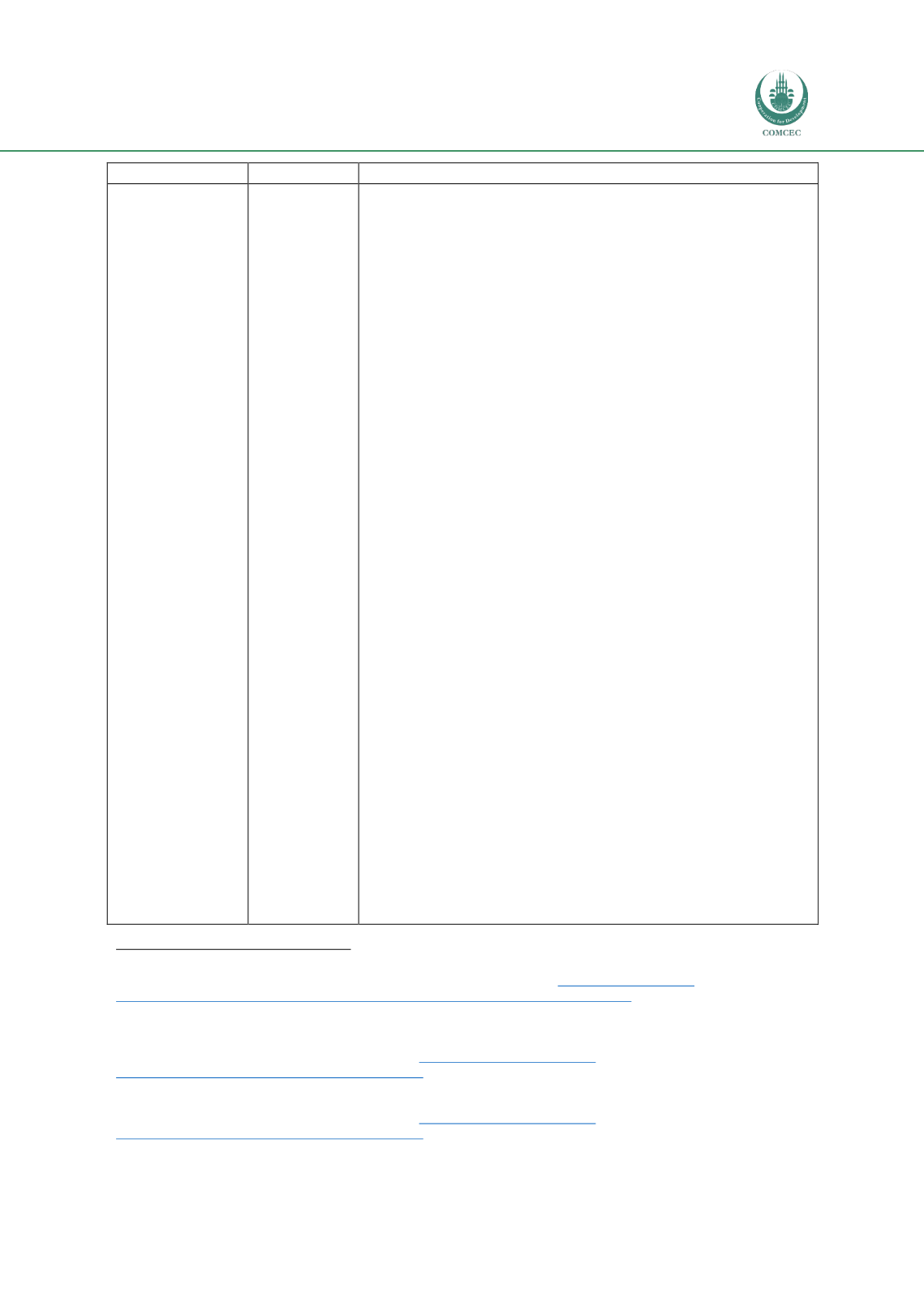

Improving Agricultural Market Performance:
Creation and Development of Market Institutions
141
Classification
Institution
Description
PTPN III operates 43 sugar factory units (producing 138,000 tonnes
cane per day), 80 rubber factory units (producing 916 tonnes per
day), 76 palm oil factory units, and 38 tea factory units.
423
These
production units include 11 palm oil mills, three latex factories, four
crumb rubber factories, and six ribbed smoked sheets rubber
factories.
424
PTPN III sells to traders, which are selected through
tender programs.
425
These traders mostly sell domestically, which
reduces PTPN’s international market access. On the other hand,
however, anything sold above the floor price of US$700 per tonnes
crude palm oil (CPO) results in the application of a progressive export
levy. Once CPO is sold below this floor price, the Government will
provide a dedicated CPO fund. This mechanism hence encourages to
sell to the domestic market with lower prices and fits with the
Government’s overall policy of self-sufficiency.
Furthermore, in order to accelerate downstream CPO activities and
stabilize fresh fruit bunches (TBS) prices, the Sei Mangkei industrial
area has been developed in North Sumatra.
426
Sei Mangkei is
strategically located near palm oil plantations and in close proximity
to the Kuala Tanjung harbor and Belawan seaport, which are both
access points to the Maritime Silk Road. A total of US$385 million has
been spent on multimodal infrastructure (e.g. dry port, railways,
motorways, and container capacity) and utilities (e.g. gas, water,
electricity, and telecommunications).
427
Sei Mangkei has been designated a Special Economic Zone (SEZ) status
given is importance and priority in Indonesia’s MP3EI. Sei Mangkei
comprises industrial, logistics, residential, and leisure areas and is
developed in three phases, covering an area of 2,000 hectares.
428
Fiscal and non-fiscal incentives such as tax holidays, customs
exemptions, and tax allowances are provided given it SEZ status –
both for domestic and foreign investors.
The Sei Mangkei SEZ, which was inaugurated in early 2015, is
clustered around PTPN’s palm oil processing, milling, and refinery
facilities, which covers about 245 hectares.
429
The Sei Mangkei SEZ is
open to domestic and foreign investors. For example, Unilever,
together with PTPN II, invested in an oleo-chemical facility. The
Government of Indonesia has now transferred the ownership,
management, and promotion of the Sei Mangkei SEZ to PTPN III but
PTPN III is looking to attract an (international) investor to operate the
industrial area.
430
423
Interview conducted with PT Perkebunan Nusantara III in Jakarta, July 12, 2017
424
Indonesia Investments (2017), Perkebunan Nusantara III (SOE), available a
t https://www.indonesia- investments.com/business/indonesian-companies/perkebunan-nusantara-iii-soe/item1204 [Accessed June 2017].
425
Interview conducted with PT Perkebunan Nusantara III in Jakarta, July 12, 2017
426
Ibid
427
BKPM (2016), Investing in Indonesia’s Special Economic Zone (SEZ) Sei Mangkei, North Sumatra - An overview of
opportunities, capabilities and provisions, available a
t http://www.euind-tcf.com/wp- content/uploads/SEZSeiMangkei_ValueProposition.pdf[Accessed June 2017].
428
Interview conducted with PT Perkebunan Nusantara III in Jakarta, July 12, 2017
429
BKPM (2016), Investing in Indonesia’s Special Economic Zone (SEZ) Sei Mangkei, North Sumatra - An overview of
opportunities, capabilities and provisions, available a
t http://www.euind-tcf.com/wp- content/uploads/SEZSeiMangkei_ValueProposition.pdf[Accessed June 2017].
430
Interview conducted with PT Perkebunan Nusantara III in Jakarta, July 12, 2017


















